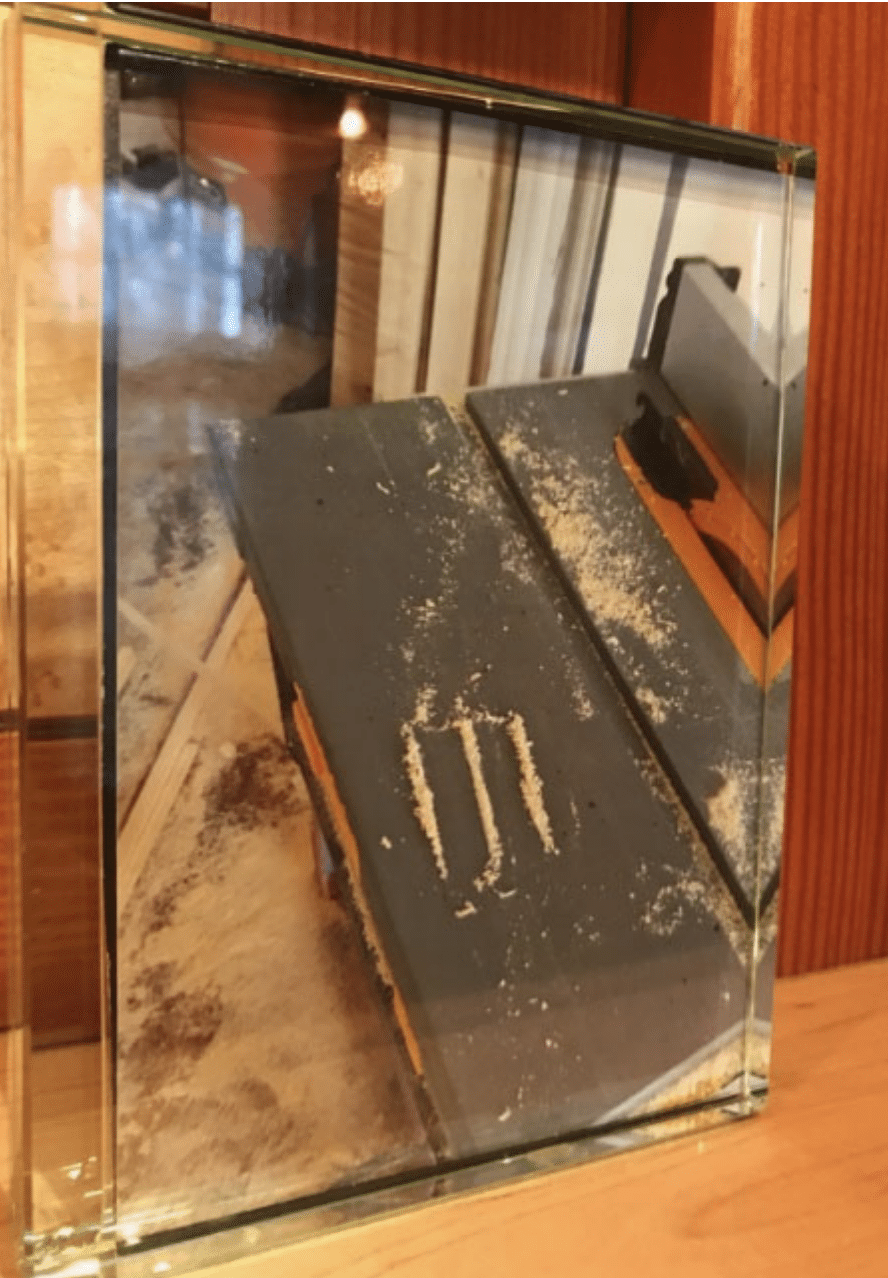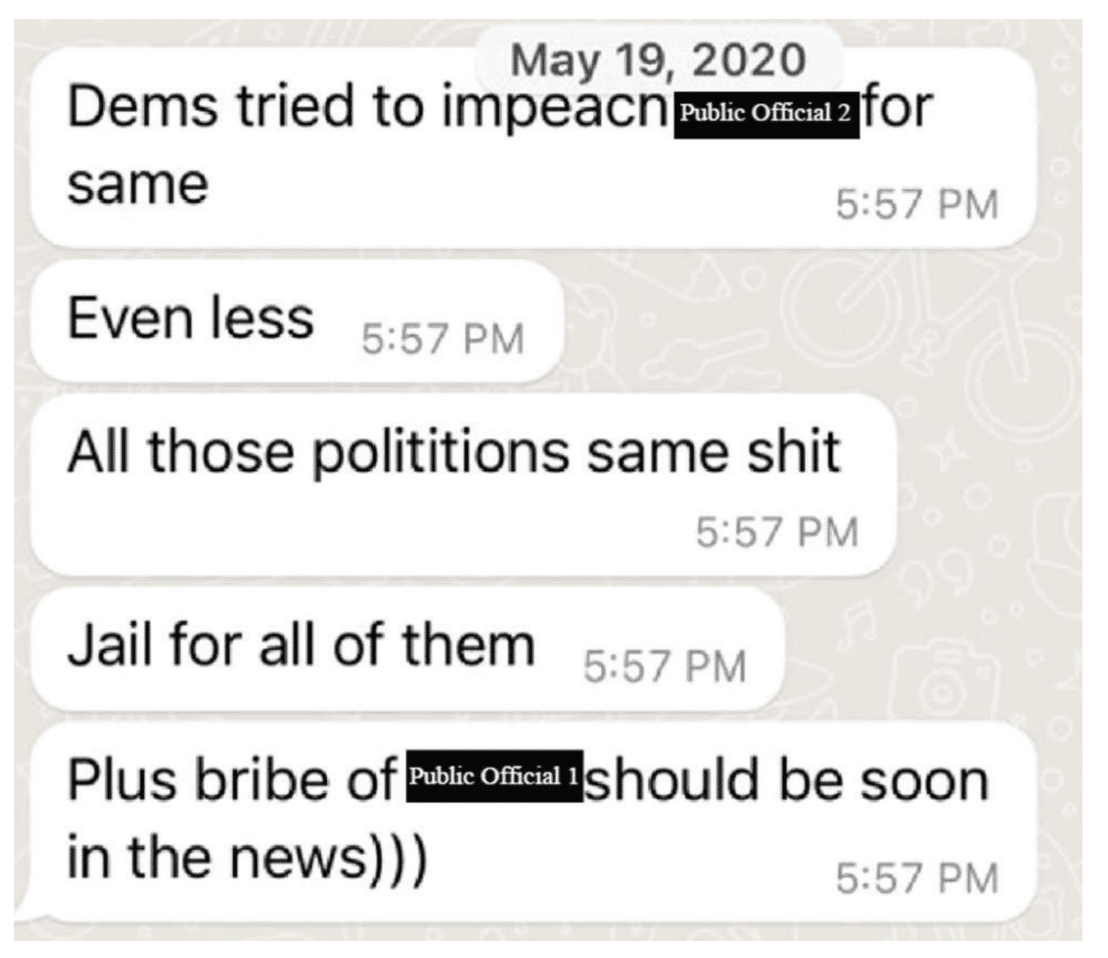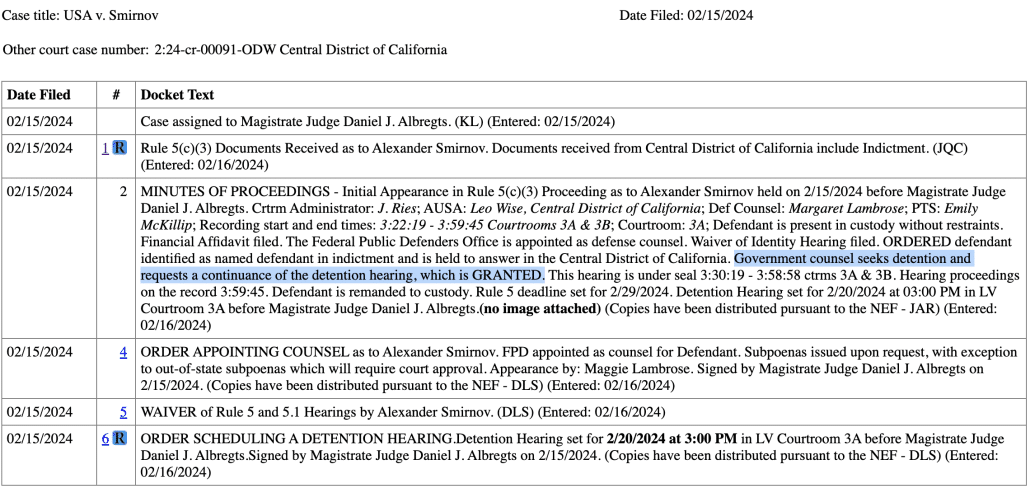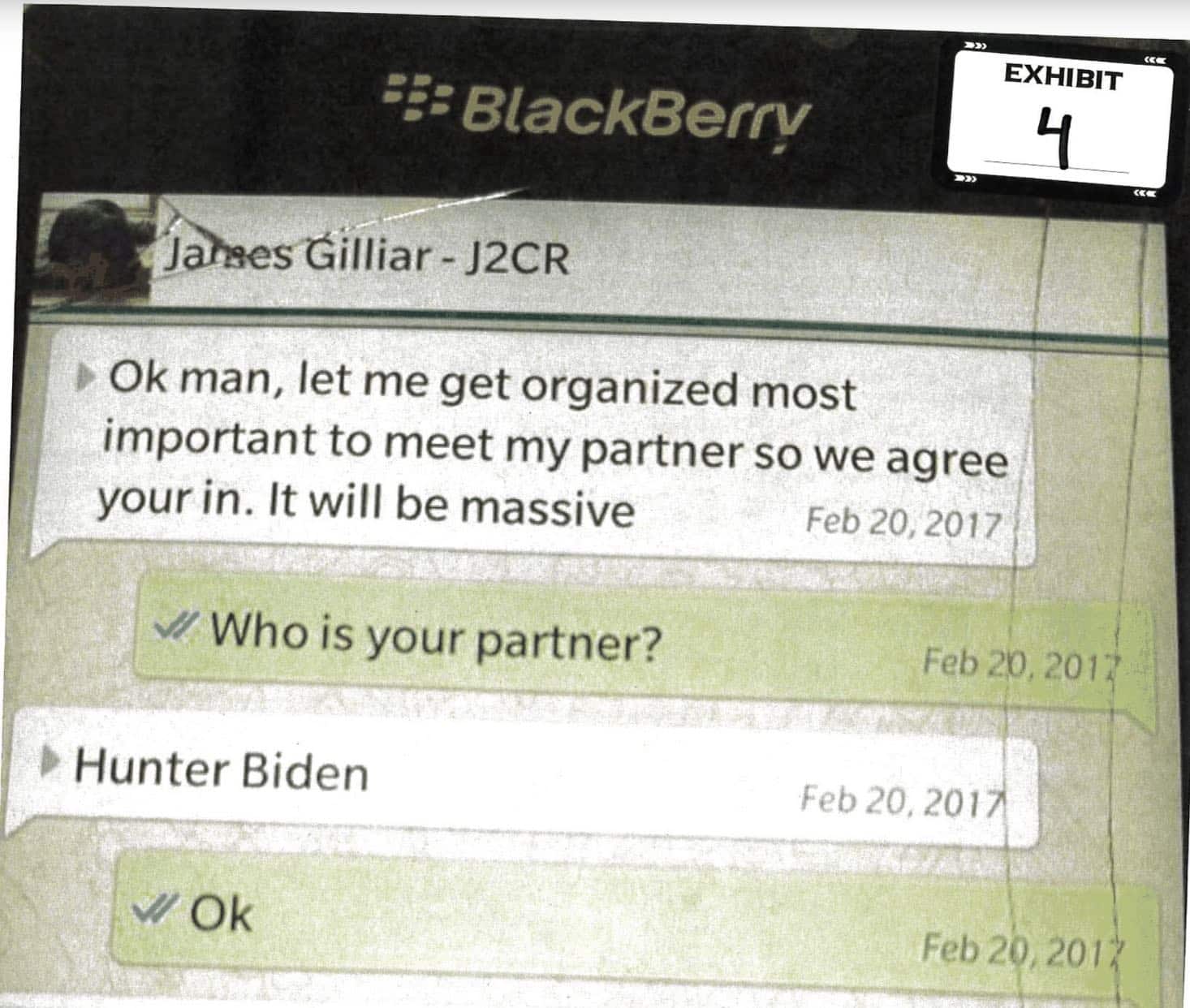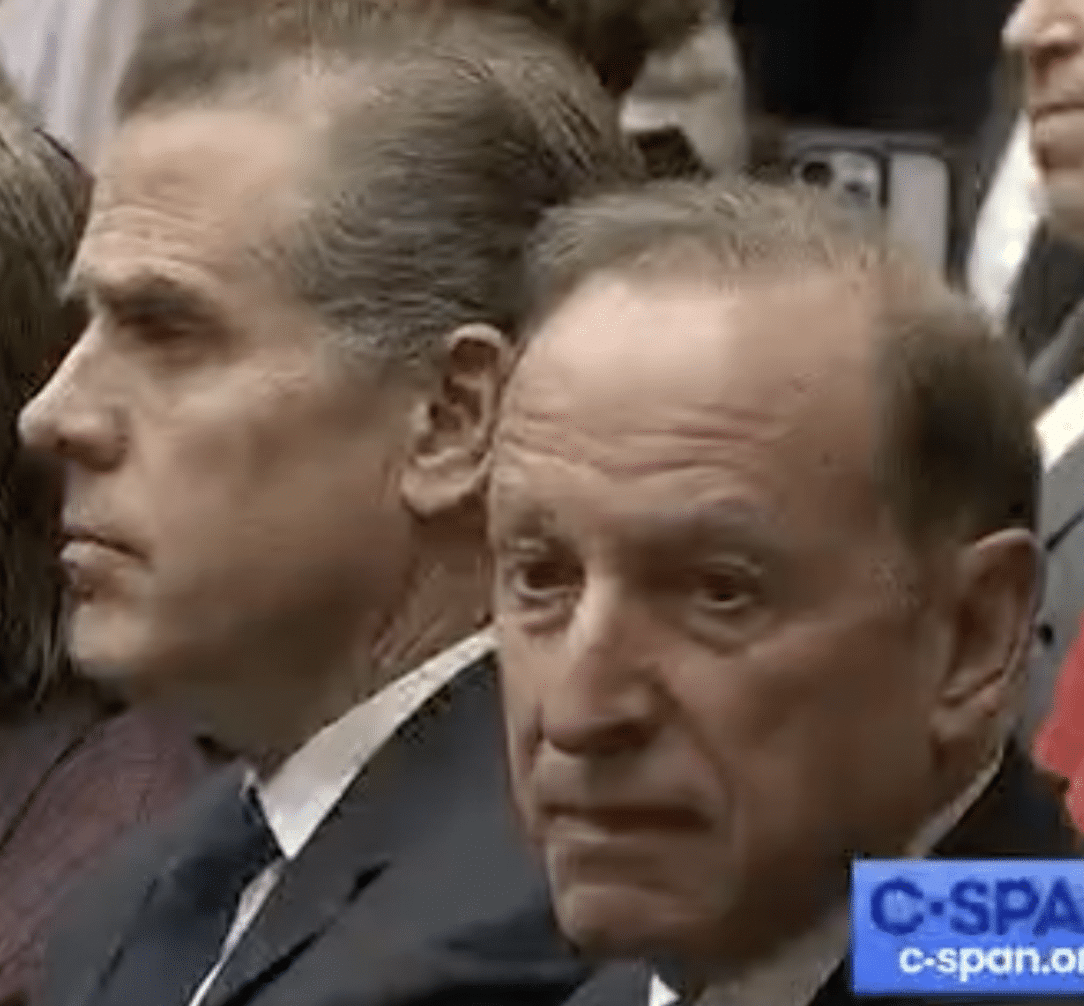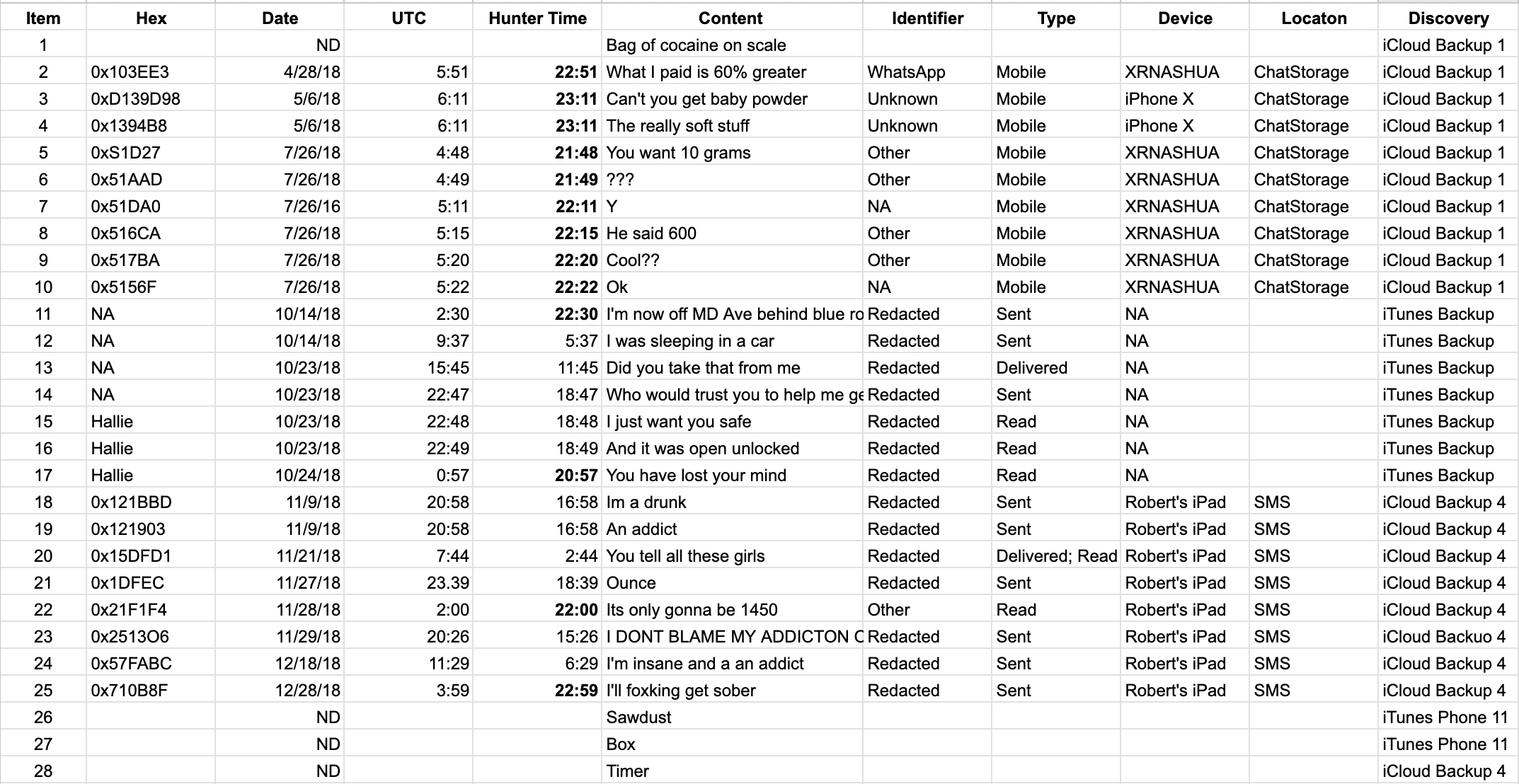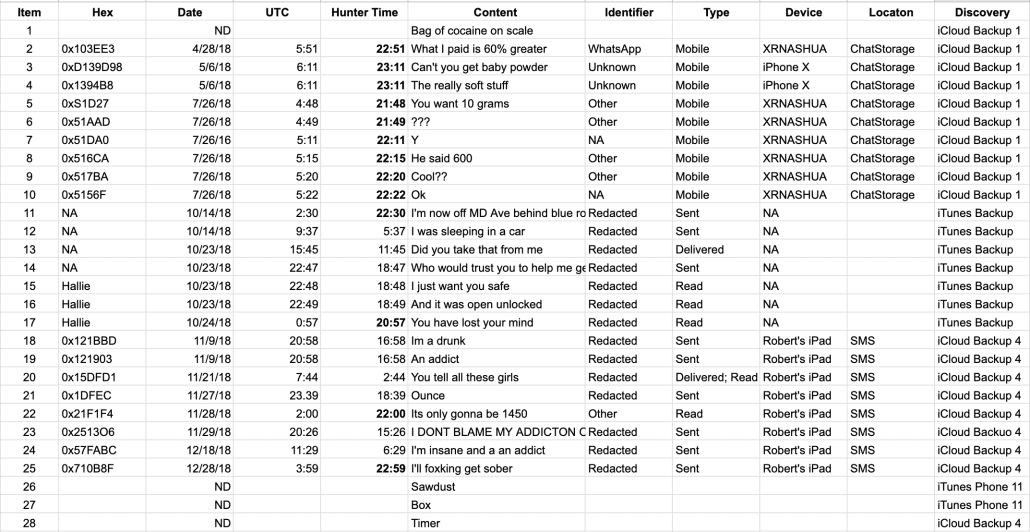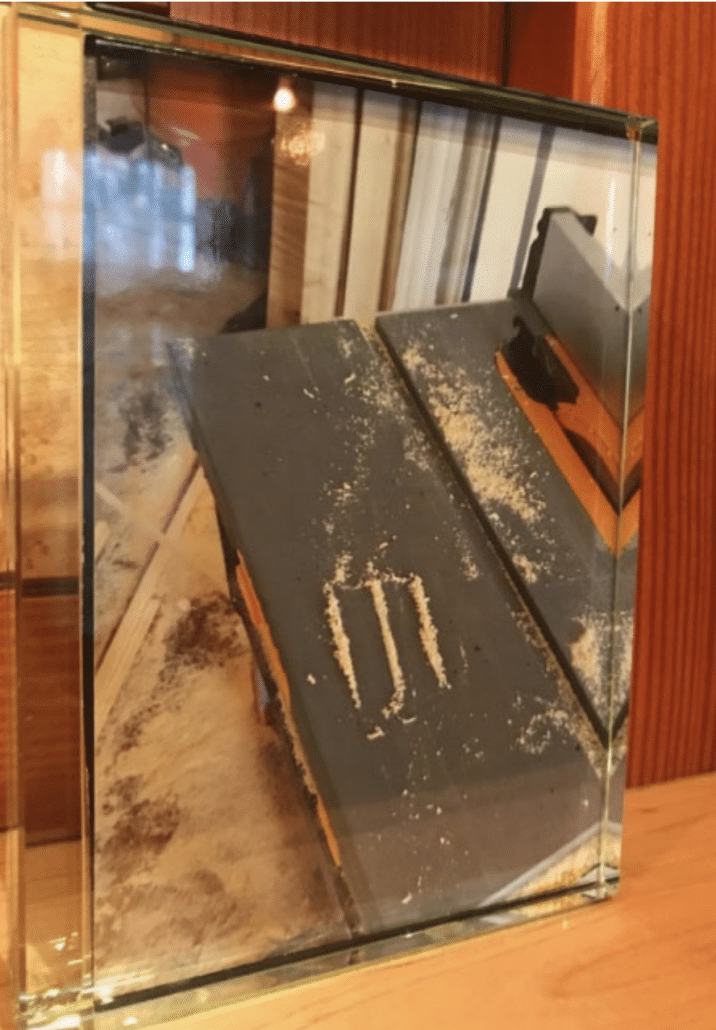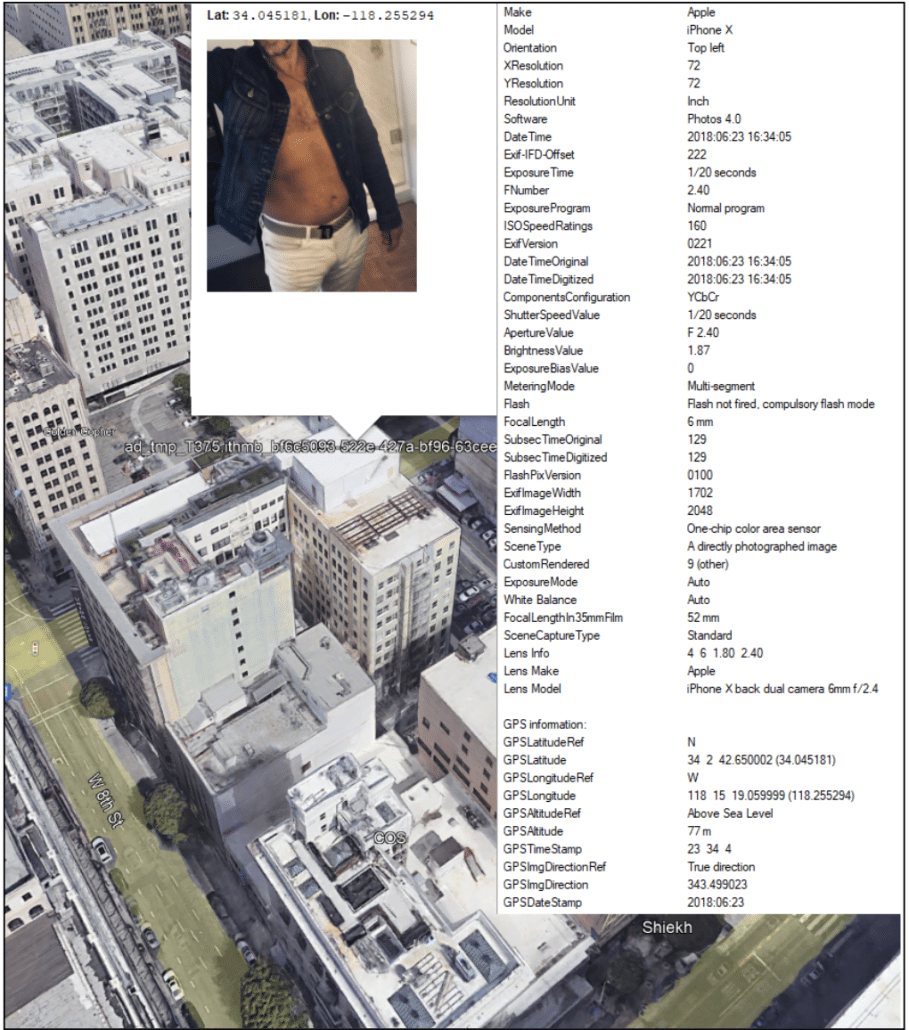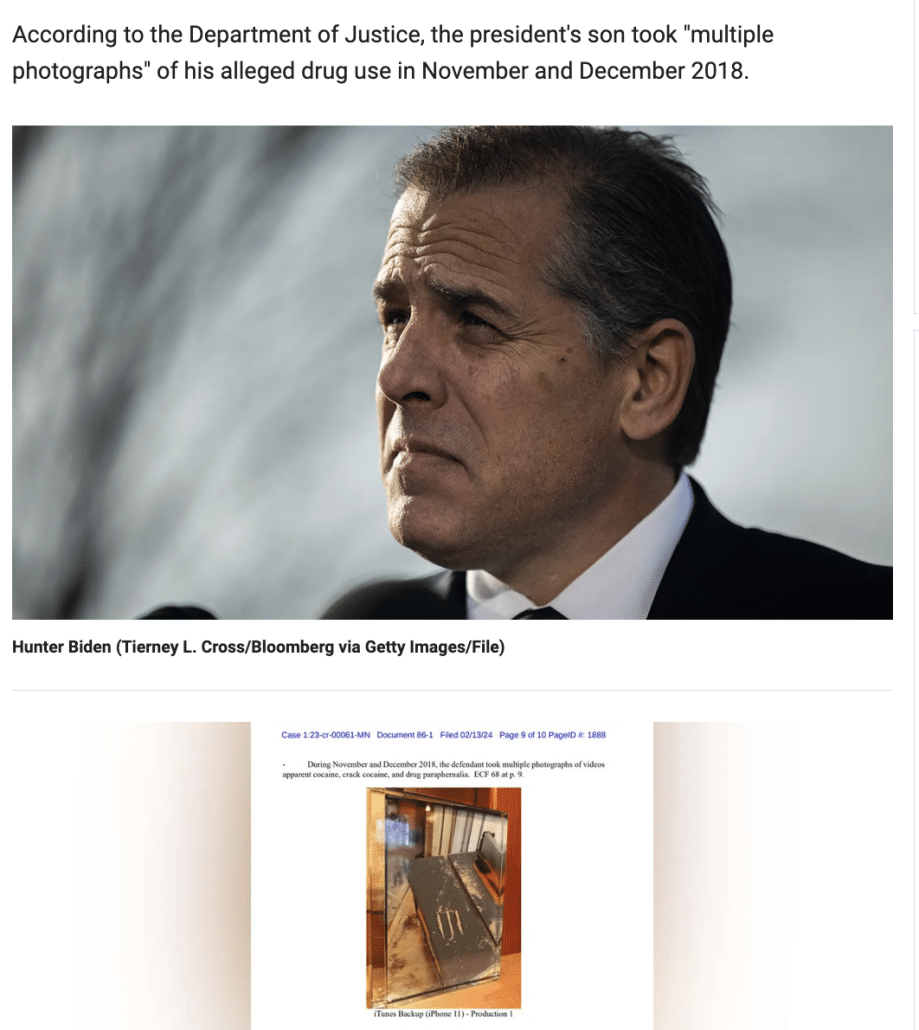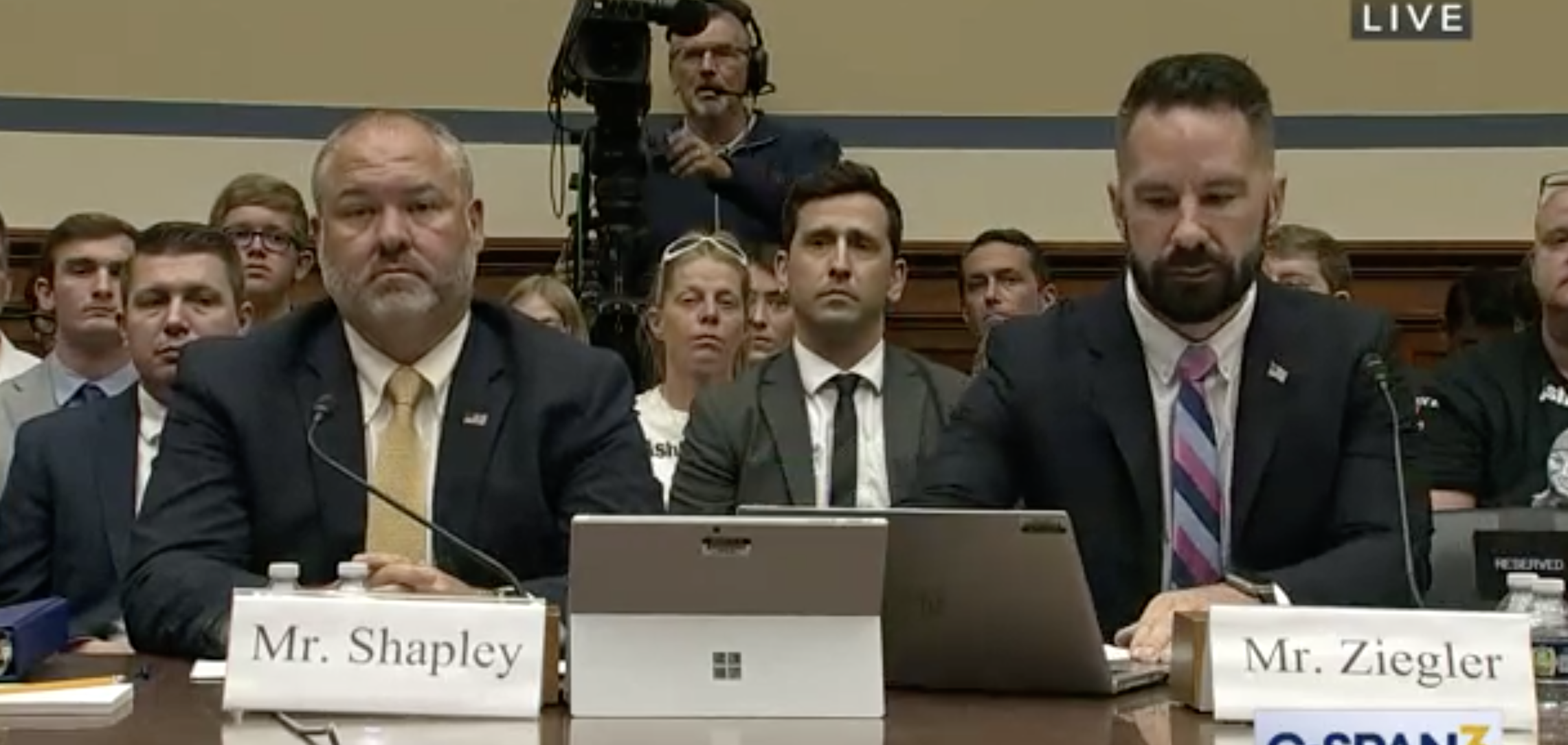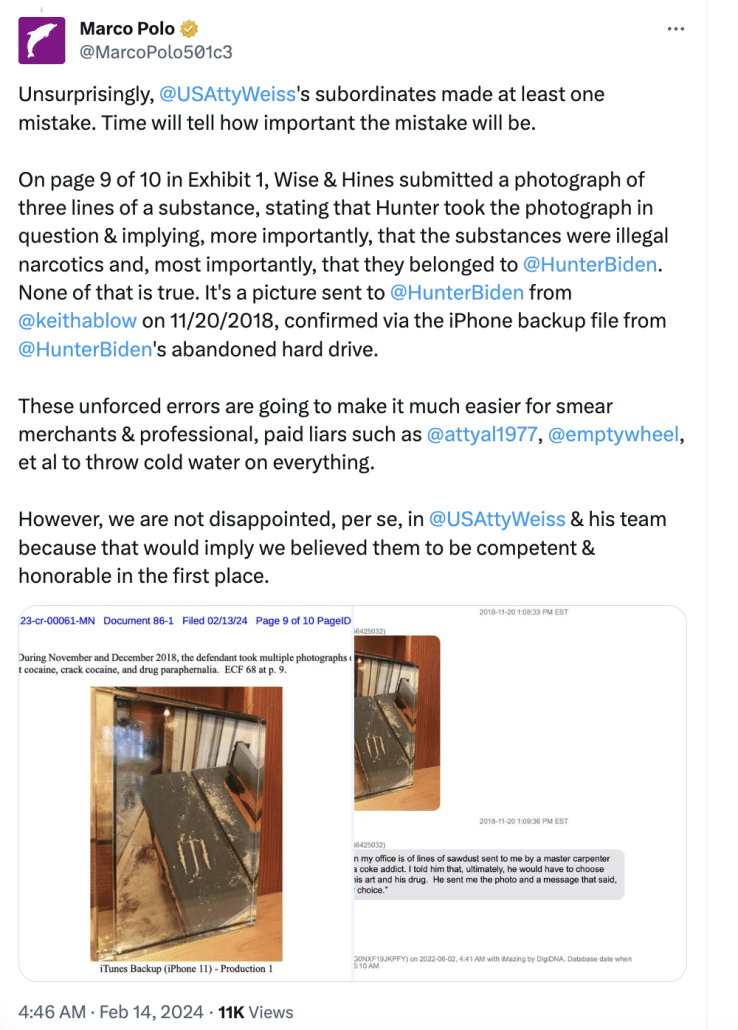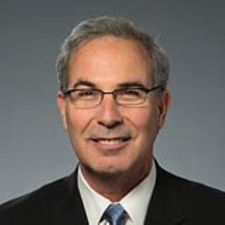I wrote two short threads on the Tony Bobulinski transcript released this week (one, two).
As with all things involving James Comer’s Oversight Committee, it quickly disintegrated into farce.
The story Bobulinski told was that — as a former Q Clearance holder (he raised the Q Clearance he held years ago over a dozen times) — he wanted nothing to do with CEFC, because, “lying, cheating, and stealing is sort of an acceptable practice … in China.” But then, in 2017, he mysteriously put aside his concerns about all that to try to get in on that business deal. Then, when Hunter Biden grew to clash with Bobulinski shortly after Bobulinski got involved in efforts to do business with CEFC in 2017, Bobulinski got furious at not being able to deal with CEFC.
It took some time to lay out what Bobulinski was up to.
First, Dan Goldman elicited Bobulinski to express how furious he was at being cut out of the business.
Mr. Bobulinski. SinoHawk did not receive the $10 million because —
Mr. Goldman. Thank you.
Mr. Passantino. Hold on. Hold on. He can finish.
Mr. Bobulinski. Hunter and Jim defrauded me at the end of July — not just me, but the other members of Oneida Holdings. You’re a litigator, former prosecutor at the SDNY. You’ve seen the fully executed SinoHawk documents, the fully executed Oneida, LLC documents. You’re a wealthy man. You’re very familiar with LLCs.
They had a fiduciary duty to not circumvent, lie, or embezzle funds. And at the end of July 2017, that’s well-documented, Hunter Biden invokes his father to basically shake down and extort the Chinese to not send the money to SinoHawk Holdings and send it directly to a new entity that he worked overtime to form so he could put the money in his own pocket and Jim Biden’s pocket.
Mr. Goldman. That clearly upsets you.
Mr. Bobulinski. Have you ever been defrauded in your life?
Mr. Goldman. No. I’m just —
Mr. Bobulinski. Have you ever been defrauded?
Mr. Goldman. I’d like the record to reflect that Mr. Bobulinski was —
Mr. Bobulinski. You want to answer the question?
Mr. Goldman. No. I ask the questions, you answer the questions. You’re the witness.
And I would like the record to reflect that Mr. Bobulinski raised his voice as he was explaining that the —
Mr. Bobulinski. I clearly — hold on. Hold on. For the record — hold on, Mr. Goldman.
For the record, I was defrauded at the end of July 2017 by the Biden family. And as would anybody be, I was disappointed, frustrated, and angry that I was defrauded as a businessman that worked extremely hard to put this business together.
Mr. Goldman. And you’re still angry, right? You’re still angry, aren’t you?
Mr. Bobulinski. I’m angry that the American people have been lied to for four years about the facts of Joe Biden —
Mr. Goldman. You’re not angry about being defrauded?
Mr. Bobulinski. No. I’m a wealthy individual.
The money that Joe — the Bidens — took from me is less than $2 million at the time. I would donate that to whatever charity you would ask me to donate that to, Mr. Goldman.
Mr. Goldman. So you’re over it now?
Mr. Bobulinski. I’m over which aspect of it?
Mr. Goldman. You’re over being what you claim to be defrauded?
Mr. Bobulinski. I am angry that the American people continue to be lied about — lied to about Joe Biden and the Bidens’ involvement in —
Mr. Goldman. I appreciate that. It’s not your own financial interest. I get it.
You’re just here having nothing to do with that.
I’ll turn it back over to counsel.
From there, staffers tried to get Bobulinski to admit that the business deal he signed was with only Hunter and Jim, not Joe. Bobulinski, as he did over and over when the facts didn’t match his claims, accused people of lying. So Goldman and the staffers riffed about all the people Bobulinski had accused of lying.
Mr. [redacted]. The Biden family — the Biden family — exhibit 6, your partners are — called Bidens — are James Biden and Hunter Biden, right?
Mr. Bobulinski. Why did I meet with Joe Biden? You are obfuscating the facts of what transpired by talking —
Mr. Goldman. Sir, he’s asking you a simple question.
Mr. Bobulinski. It isn’t a simple question, Congressman Goldman.
Mr. Goldman. It’s not a simple question?
Mr. Bobulinski. No, it’s not a simple question.
Mr. Goldman. Who are the partners from the LLC?
Mr. Bobulinski. You continue to lie and obfuscate the facts to the American people. That’s why my voice is raised —
Mr. Goldman. Good. So now we’re back —
Mr. Bobulinski. — because he’s about to do it.
Mr. Goldman. So the FBI, The Wall Street Journal, Cassidy Hutchinson, all of us — there was another one. Who else lied? Yeah, the FBI agents. We’ve got that.
Mr. [redacted]. Rob Walker.
Mr. Goldman. Rob Walker.
Mr. [redacted]. James Gilliar.
Mr. Goldman. James Gilliar.
Mr. Passantino. Are there questions here pending?
Mr. Bobulinski. Do you have a question?
The Democratic staffer returned to the Oneida Holdings agreement between Bobulinski and Hunter Biden and — after much pulling of teeth — got Bobunlinski to admit that Joe Biden was not one of his partners.
Q You signed a limited liability agreement for Oneida Holdings, LLC, correct?
A I did.
Q And this is a truthful and accurate document about the organization of the company, right?
A It is. It’s a binding legal agreement.
Q You wouldn’t sign —
A That’s why I can confidently state they defrauded me in July of 2017, yes.
Q You wouldn’t sign your name to a false document, right?
A Of course not.
Q And this document accurately sets out who your business partners are, right?
A That’s a vague question, “accurately.” It commemorates who ultimately was —
Q The LLC document does not care about —
A Wait, wait, wait.
Q No. My questions, Mr. Bobulinski.
Are you — is your testimony here today that this limited liability company agreement does not clearly set forth the partners of Oneida Holdings, LLC?
A That was not my testimony. My testimony was that that executed agreement clearly defines there are five entities that own 20 percent each. I’ve gone through that, I think, now three times.
Q And those entities are Hunter Biden’s entities? A Correct.
Q James Biden’s entities?
A Correct.
Q John Walker’s entity?
A Well, not John Walker. Don’t misstate for the record.
Q John R. Walker.
A Rob Walker.
[snip]
Q Mr. Bobulinski, I’m just trying to ask you who your partners in Oneida 10 Holdings, LLC are. This isn’t supposed to be a hard question.
[snip]
BY MR. [redacted]:
Q This is a simple question, who his partners are.
A And I’m giving you simple answers. I’ve already testified to this three — I think, three times at this point.
Q So then let’s do it quickly. Your partners are Hunter Biden, James Biden, Rob Walker, James Gilliar, and yourself?
A Yeah, that’s an incorrect statement. My partners were the LLCs that represented Hunter Biden, Jim Biden, Rob Walker, James Gilliar, and myself.
Q Okay. Great.
And when you say that your — the Biden family cheated you, your partners —
A It’s called fraud.
Q Defrauded you.
A I used the specific word.
Q You’re referring to — you’re referring to James Hunter — James Biden and Hunter Biden, who opened Hudson West III. Is that correct?
A Ask the question. But, generally, I think.
Q Okay. So when you’re talking about the Biden — your partnerships with the 22 Biden family, you’re talking about Hunter Biden and James Biden?
A That’s not what I’m talking about. I’ve spent at least almost four hours now 24 talking about my meetings with Joe Biden, how Joe Biden was invoked, us trying to get 25 Joe Biden to a meeting in New York, and stuff like that, so I don’t —
Q Joe Biden was your partner?
There were some other choice moments, such as when Bobulinski treated the prospect of Trump taking CEFC money while Commander-in-Chief as merely hypothetical…
Q There was a report that came out in January in which the Oversight Committee Democratic staff showed with receipts that Donald Trump, while he was Commander in Chief, received money from CEFC.
Assuming that fact to be true, does that give you concern?
A I think your question is actually absurd, and the statement is absurd, because if you could show me that money — you’re acting — I guess you’re asking me to opine that did CEFC give Donald Trump money directly into his pocket. I can’t opine on that.
Q I’m just asking you if he were to have received money from CEFC, would you find that troubling? You just described at length how concerned you were at CEFC, the national security implications.
I’m asking you, a Commander in Chief —
A You’re asking me a hypothetical, and you want me to respond to the hypothetical?
Q Sure.
Mr. Passantino. You can respond to the best of —
Mr. Bobulinski. I would be just as concerned — maybe my answer would be, if the Trump family had done with CEFC what the Biden family had done, I would be equally as vocal and concerned about our national security and voicing those concerns and getting those facts out to the American people. I never did business with the Trump family. I never considered doing business and all that stuff, so I —
After which, in the next hour, Bobulinski corrected a Republican staffer who later said that allegation was mostly about Trump’s fancy DC hotel (though went on to say the condo via which CEFC paid Trump was about its location across from the UN, not Trump’s name).
Q And I just want to clarify one hypothetical that the minority brought up, which is if Donald Trump, Vice President, received any money from CEFC, I think some material facts that they omitted from that is that Donald Trump had a very famous hotel in Washington, D.C., and elsewhere.
And so they did not tell you in their hypothetical that, as part of the money that they’re describing, it’s people staying at his hotel.
A Okay. I didn’t — I’ve seen some articles reference that CEFC had a condo.
I was never in the condo, but if you read the 1,200 pages of the Patrick Ho trial, they reference that condo in Trump Tower New York that was — there’s a reason why.
If it was called the Smith Tower, they would have had one in the Smith Tower.
Democrats focused remarkably little on Bobulinski’s relationship with the son of Viktor Vekselberg (one of the issues that gave Rob Walker concern with doing business with Bobulinski). After he complained amounted to smearing him with, “Russia Russia Russia,” Democrats dropped it (and didn’t pursue other allegations of ties to Russian money or his inconsistent statements about the role of Rosneft in the split over CEFC).
Q And, when you were in Las Vegas, you were there with somebody named Alex Vekselberg, correct?
A Ask the question again.
Q Alex Vekselberg, you were in Las Vegas with Alex Vekselberg?
A I wasn’t there with him. He was in Las Vegas for other things, but he did —
Q At some point, you were together with him in Las Vegas?
A I was. I was, correct.
Q And you know that Mr. Vekselberg is the son of Viktor Vekselberg?
A Well, I know that Alex Vekselberg is an American citizen born in the United States, a Yale-educated individual and a successful businessman in his own right. And I do know that he is the son of Viktor Vekselberg.
Q And you know that Viktor Vekselberg is a Russian oligarch who’s been sanctioned now by the United States several times?
A It’s actually funny you should ask me that. I’m actually surprised you guys don’t know this. Viktor Vekselberg was actually born in Ukraine. So he’s not a Russian.
He’s a Ukrainian businessman. You can look it up. I think I was born within a hundred miles of the Polish border, and so he’s a Ukrainian businessman.
And I don’t — I’m not aware of — I thought you guys were big supporters of Ukraine. You try to use Russia to paint different things, but he’s actually — my understanding, just — you can look it up. He was born in Ukraine. And — and so your question?
Q Oh, I think you answered my question.
A Okay, great. Oh, sorry, I didn’t answer your question. You asked — you made some reference to sanctions. I’m not aware of that and when that happened and all those nuances. But, once again, I can’t, because —
Q Well, you do know where he was born within a hundred miles.
A Well, because I looked it up, right? I wasn’t told that. I looked it up.
Everyone in here can look it up. And, second, I want to reiterate that Alex Vekselberg is an American citizen afforded the same rights, respect as you and I. Well, I can’t speak for you, that I am as an American citizen. And, at the time I had that meeting in Las Vegas, his father was not sanctioned by the United States.
Mr. [redacted] Do you not believe my colleague is deserving of rights and respect?
Mr. Passantino. If you’re going to accuse him of associating with Russian oligarchs, that’s the answer you’re going to get.
Mr. [redacted]. We’ve not accused him of anything.
Mr. Bobulinski. No, no, no, no. Yes, you have. Yes, you have. No, no, no.
Your operatives — no, no, no.
Mr. [redacted]. We’re not accusing you of anything.
Mr. Bobulinski. Your Democratic operatives have written smearing stuff about Russia, Russia, Russia, attacking my family and myself, and it’s disgusting to me. I’m a former Naval officer —
Mr. [redacted]. Let me ask you a question.
Mr. Bobulinski. — who had the highest security clearance. So wait. To your question, I didn’t show her — I said I can’t assume she’s an American citizen. I don’t know that she’s an American citizen. I said he should be afforded all the rights and respect of an American citizen, as should I. If you’re an American citizen, then you should be afforded those same rights and respect.
That’s all background to Bobulinski’s alternative narrative about how he decided to take on Joe Biden — which he says started during the 2019 Trump impeachment and which led up — as Democratic staffers reviewed — to his pitch to the WSJ before the Hunter Biden laptop came out in 2020.
Q So you expressed the reasons you came forward. You said the first cog was the impeachment of Donald Trump. The second cog was the nomination of Joe Biden.
You came out with this information publicly just before, weeks before the 2020 Presidential election. Is that correct?
A It’s not a true statement. And, second, it wasn’t that Donald Trump is the individual who was being impeached. It was that a President of the United States was being impeached with the obfuscation of how the Biden family operated and did business around the world. That was my frustration, anger.
And so I started thinking I know them to operate and how they operate his business. There’s lies being told and obfuscation. So it wasn’t specific to Donald Trump as an individual. It was specific to a President of the United States being impeached over what I believed were lies about how the Biden family did business around the world and operated.
Q Thank you. Your October 2020 press conference at the Marriott in Nashville, Tennessee, who organized that for you?
Mr. Passantino. I guess you can answer, again, to the extent you know.
Mr. Bobulinski. Organized what for me exactly, I’m asking?
In the end, Bobulinski kept obfuscating about his ties to the Trump campaign.
But he did tie his involvement in this attempt to impeach Joe Biden with the first attempt to impeach Donald Trump.

